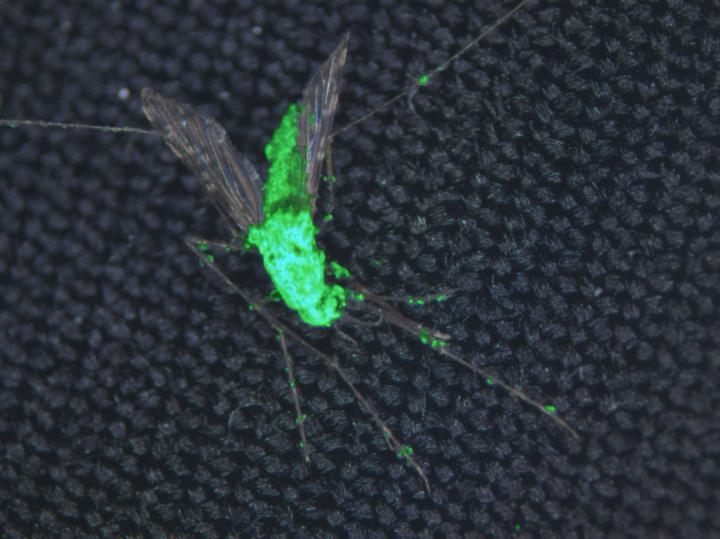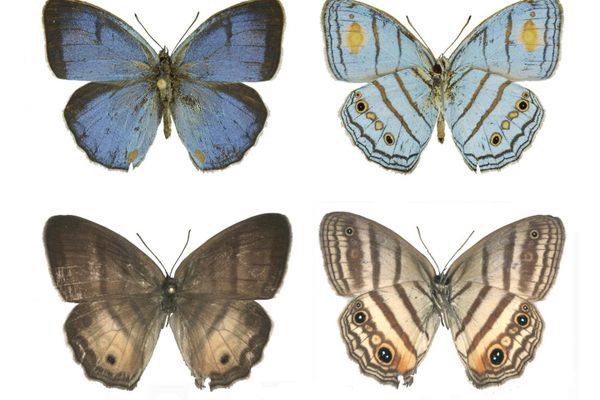A Fungus Is the Newest Weapon in the War on Mosquitoes
It’s armed with spider and scorpion neurotoxins—but it only affects bloodsuckers.

Humans have tried a lot of things to kill or repel mosquitoes. Pesticides, citronella candles, smelly DEET spray, and, most recently, gene drives have all been used on the pesky, disease-carrying insects. Scientists have now developed a promising new weapon in the war on mosquitoes, a fungus armed with spider and scorpion venom.
Yes, that sounds rather alarming, but the fungus only kills mosquitoes, and research suggests it only impacts species, such as Aedes aegypti, that carry diseases such as malaria, dengue fever, and yellow fever. But the fungus isn’t very potent on its own—it takes a lot to actually kill a mosquito. So an international team of researchers gave some of the strongest fungi strains a genetic boost with genes from the North African desert scorpion and the Australian Blue Mountains funnel-web spider that code for toxins that block nerve impulses.
Tests on wild-caught mosquitoes show the genetically modified fungus is quite lethal to them. Just one spore of the fungus was enough to kill an insect—and stop their blood feeding. “Our fungal strains are capable of preventing transmission of disease by more than 90 percent of mosquitoes after just five days,” said Brian Lovett, an entomologist at the University of Maryland and coauthor of the report, in a press release.

While the idea of releasing into the wild a fungus that produces neurotoxins sounds terrifying, it’s apparently nothing to worry about if you’re not a mosquito. The toxins themselves are already approved for use in insecticides by the Environmental Protection Agency. And the fungus really does affect only mosquitoes. In experiments, honeybees went about their business just fine after being sprayed with fungal spores. If all goes well, the spores could be released in the wild, with the additional safeguard of a gene that only allows the release of neurotoxins into insect blood. But this might all take some time, so don’t throw out your bug spray just yet.



















Follow us on Twitter to get the latest on the world's hidden wonders.
Like us on Facebook to get the latest on the world's hidden wonders.
Follow us on Twitter Like us on Facebook